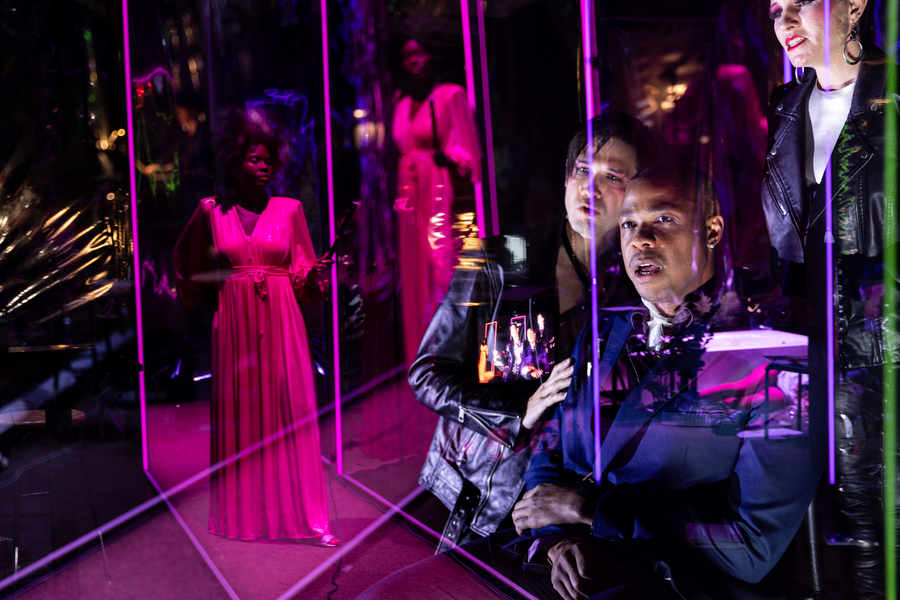Envisioning Future of Opera: Creative Exploration

Envisioning Future of Opera: Creative Exploration
Turning to a part-art, part-sci-fi blend, ‘Envisioning Future of Opera’ has started to mix with clever robots. Bright thinkers have some wild thoughts about what comes next. Needs are changing; creations change as rules have adapted songs on stage turn new due to machine help, over years that have spanned.
New ways must be taken, diving into the chance for change when brains of steel meet old stage plays. By looking way ahead, old shows full of flair might freshen up. With some daring drive, plays the belt with a new twist—as before our eyes, a twist in the future of shows is watched.
Harmony of Tradition and Innovation
Opera was always a place where creative folks came together. Singers, people who write music, and the ones running the show worked as a team. They made tales come alive in a show. But these days, AI is part of the mix, bringing something new.
Think about a show with tunes made by a computer program , Brain and Computational Models in Learning . It looks at old, fancy music but makes it sound fresh. Because of AI, trickier music gets made. This is because I can spot tunes that match and make cool, new sound combos that we didn’t expect before. Therefore, things aren’t the same on stage anymore.
Libretto Redefined by AI
Once written by hand and inspired by tails from long ago, opera stories, now, through clever machine work, might be woven using the talk and writings of the here and now, which includes online chatter. It is unexpected, but bits and pieces from the web could end up as part of a show’s deep words and story. The heart of an opera show, written by hand no more, is shaped by machines studying old opera words and today’s daily babble.
Virtual Performances and Digital Stages
Before now, plays seen tonight or in days long ago always had a live cast and sets made by hand. But robots introduced an idea: opera with no live singers, where they instead are cartoons that can sing high or low and runners that can’t run—all made by a computer to show the highs and lows in the songs sung. This kid kind of play goes places without ever doing a thing that’s real—they just pretend very, very well.
AI-Aided Vocal Performances
The human voice, the primary instrument of opera, holds a unique power to convey emotion and tell stories. With AI, vocal performances can be elevated to new heights. Vocal synthesis algorithms, trained on a vast array of vocal styles, can emulate the voices of legendary opera singers or create entirely novel vocal expressions. This not only expands the repertoire for performers but also enables the exploration of unconventional vocal landscapes that challenge traditional notions of operatic singing.
Dynamic Adaptations in Real Time
One of the most exciting prospects that AI brings to opera is the ability to adapt performances in real time. Imagine an opera that responds to the emotional state of the audience. Biofeedback sensors could gauge the collective emotional response of the audience, influencing the tempo, intensity, and even the plot of the opera. This interactive and dynamic experience could redefine the relationship between performers and the audience, creating a symbiotic exchange of emotions.
Challenges and Ethical Considerations
As we envision this AI-infused future of opera, it is essential to address the challenges and ethical considerations that come with it. Questions about intellectual property, the role of human creativity, and the potential loss of authenticity must be carefully examined. Striking a balance between the capabilities of AI and the essence of human artistry is crucial in ‘Envisioning Future of Opera,’ ensuring technology enhances the cultural significance of this timeless art form.
Conclusion
The amalgamation of AI and opera opens a Pandora’s box of possibilities. “Envisioning the Future of Opera: A Creative Exploration” invites us to consider the uncharted territories where tradition and innovation, humanity and technology, converge. As we peer into this future, the key lies in embracing the transformative power of AI while preserving the timeless essence of opera. The journey ahead promises to be both challenging and exhilarating, as we navigate the unexplored realms of artistic expression.
